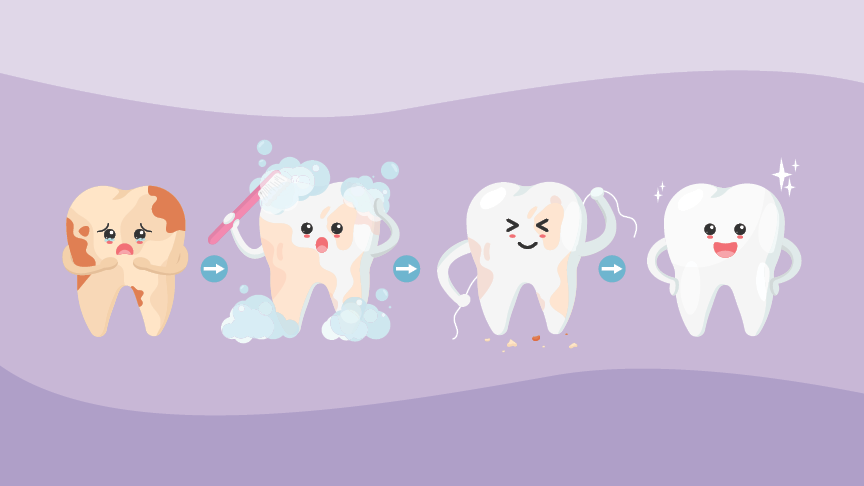
We asked one of our senior oral health therapists, Debra McKenzie, to share her top tips for looking after your teeth this Easter, and to explain the importance of good daily oral health behaviours!
Don’t worry, we’re not here to tell you not to eat chocolate this Easter! Deb’s tips are all about having your choccie and protecting your teeth at the same time.
1. Limit the frequency of sweet treats
Grazing on Easter eggs will leave your teeth coated in sugar all day, increasing your risk of decay. It’s best to limit how often you are eating your Easter eggs.
2. Enjoy your chocolates after meals
When you eat your mouth produces saliva which has proteins and minerals that protect your tooth enamel and prevent tooth decay and gum disease. Eating your chocolate after meals means your mouth is already producing saliva and will be better equipped to fight a sugar-induced acid attack.
3. Wash down your chocolates with water
Keep a glass of water near you when you’re eating your chocolate eggs. A quick ‘swish and swallow’ will remove some of the sugar from your teeth, and the bonus is that you also improve your hydration.
4. Brush your teeth twice a day and floss
This is a great tip to include in your daily routine, not just at Easter. Aim to clean your teeth for two minutes twice a day focussing along the gumline and in between your teeth. If you have little ones, supervise their teeth brushing and make sure their teeth are clean before bed.
5. Enjoy your Easter treats on Easter Sunday
Avoid collecting a big stash of chocolate that can be eaten for weeks after Easter. Try purchasing only enough chocolate eggs to be eaten on Easter Sunday.
6. Replace your toothbrush every 3 months
Even if your toothbrush still looks as good as new that doesn’t mean it’s not full of bacteria. If you can’t remember when you last purchased a new toothbrush, now is a good time to swap it over. Deb suggestion to help you remember, is to change at the beginning of every season.
The importance of daily good oral health behaviours
Tooth decay and gum diseases are common but largely preventable, which is why it is is so important to practice good oral health behaviours every day. If you have young kids, it’s important to include good oral health behaviours in their daily routine as well.
These six tips provided shouldn’t be only followed at Easter. It’s good to be aware of good dental hygiene and practice these behaviours all year long for healthy teeth and gums!
Remember to also visit the dentist at least once a year. Your pearly whites will thank you with a beautiful smile!